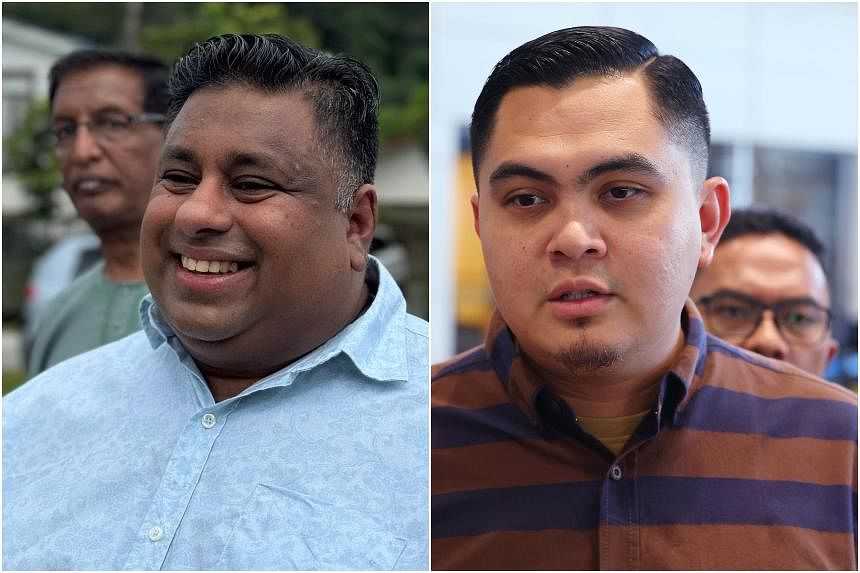KUALA LUMPUR – Leaders of two key parties in Malaysia’s unity government, Umno and the Democratic Action Party (DAP), have agreed to discuss the fractious issue of vernacular schools over coffee, in a gesture viewed as a hopeful start to more civil discourse between the two longstanding rivals.
The argument was sparked by Umno Youth chief Akmal Saleh, who said primary schools that still use Chinese or Tamil as their medium of instruction were polarising the country’s multi-ethnic society.
Public schooling in Malaysia is divided into national schools, which teach in Bahasa Melayu, and national-type schools, or vernacular schools, whose medium of instruction is Chinese or Tamil. Vernacular schools are protected under Malaysia’s federal Constitution.
In a Facebook statement on March 9, Dr Akmal proposed that the government should conduct a full review of Malaysia’s more than 1,800 vernacular schools, saying that rising racial polarisation should be addressed at the primary school level.
He also claimed that the separate school system was the reason behind such division.
“The review must touch on standardising the syllabus, national values and command of Bahasa Melayu as the national language,” said Dr Akmal.
This prompted former DAP leader P. Ramasamy to slam Dr Akmal a day later, saying he was “deluded” for thinking that vernacular schools were the cause of racial polarity and disunity.
The former Penang deputy chief minister, who left DAP to form Tamil rights organisation Urimai, also asked if Dr Akmal wanted to abolish vernacular schools.
On March 11, DAP assemblyman Rajiv Rishyakaran posted a statement on Facebook, inviting Dr Akmal to “have coffee” and a civil dialogue if he was sincere about national unity.
Dr Akmal accepted the invitation, and they are expected to meet on March 17.
While the gesture appears to have cooled tensions between the two parties, analysts say it is too early to predict if it sets a precedent for how their future race-based discussions will be handled.
DAP, a multiracial party with strong Chinese support, and Malay nationalist party Umno were bitter enemies with opposing ideologies before they became partners in Prime Minister Anwar Ibrahim’s unity government, which was formed in November 2022.
Political analyst Bridget Welsh told The Straits Times that the chat over coffee “is a good first step” but it is still too early to tell whether discussions on sensitive racial matters will become less confrontational between the two parties.
“Dialogue is always valuable, and the two leaders in the unity government are adopting an approach for engagement. Yet, the saliency of divisive ethnic politics runs deep, as does the use of these issues for political mileage,” she said.
“It is important to recognise that these issues are being brought into the political arena to win support in the base of the respective parties,” said Dr Welsh, who is an honorary research associate with the University of Nottingham Asia Research Institute-Malaysia.
Umno and DAP have disagreed publicly on a number of issues since becoming part of the ruling government.
The most recent quarrel was over DAP’s Housing and Local Government Minister Nga Kor Ming’s proposal to nominate Chinese new villages in Selangor as Unesco World Heritage sites.
These were internment camps created by British colonial rulers from 1948 to 1960.
Several Umno leaders, including deputy president Mohamad Hasan, rejected the idea, with party secretary-general Asyraf Wajdi Dusuki claiming that if approved, their heritage status would indicate that the Chinese in the new villages were Malaysian natives, therefore infringing on the Malays’ special rights.
The parties have also disagreed over the Pardons Board’s controversial decision to halve the prison sentence of convicted former prime minister and former Umno chief Najib Razak.
DAP lawmaker Ramkarpal Singh demanded an explanation for the decision, which will see Najib serving just six years for corruption, while Umno president Zahid Hamidi said his party will continue to fight for Najib’s full release.
Singapore Institute of International Affairs senior fellow Oh Ei Sun told ST that the willingness of the two leaders from Umno and DAP to discuss the sensitive issue of vernacular schools holds out hope that the younger leaders in the unity government are more pragmatic about finding a middle ground.
He conceded, however, that the parties’ ideological differences remain strong and are unlikely to be resolved in the near future.
“As these are mostly ideological issues, such as monoracial supremacy versus multiracial coexistence, they are unlikely to be resolved any time soon. So, the meeting is understandably more show than substance,” said Dr Oh.


